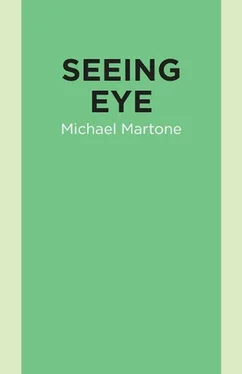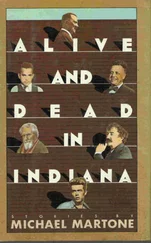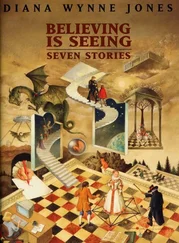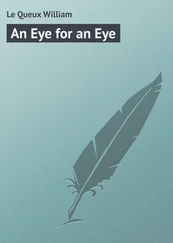Michael Martone - Seeing Eye
Здесь есть возможность читать онлайн «Michael Martone - Seeing Eye» весь текст электронной книги совершенно бесплатно (целиком полную версию без сокращений). В некоторых случаях можно слушать аудио, скачать через торрент в формате fb2 и присутствует краткое содержание. Год выпуска: 2013, Издательство: Dzanc Books, Жанр: Современная проза, на английском языке. Описание произведения, (предисловие) а так же отзывы посетителей доступны на портале библиотеки ЛибКат.
- Название:Seeing Eye
- Автор:
- Издательство:Dzanc Books
- Жанр:
- Год:2013
- ISBN:нет данных
- Рейтинг книги:5 / 5. Голосов: 1
-
Избранное:Добавить в избранное
- Отзывы:
-
Ваша оценка:
- 100
- 1
- 2
- 3
- 4
- 5
Seeing Eye: краткое содержание, описание и аннотация
Предлагаем к чтению аннотацию, описание, краткое содержание или предисловие (зависит от того, что написал сам автор книги «Seeing Eye»). Если вы не нашли необходимую информацию о книге — напишите в комментариях, мы постараемся отыскать её.
Seeing Eye — читать онлайн бесплатно полную книгу (весь текст) целиком
Ниже представлен текст книги, разбитый по страницам. Система сохранения места последней прочитанной страницы, позволяет с удобством читать онлайн бесплатно книгу «Seeing Eye», без необходимости каждый раз заново искать на чём Вы остановились. Поставьте закладку, и сможете в любой момент перейти на страницу, на которой закончили чтение.
Интервал:
Закладка:
If I am alert enough, I can record the jokes on the other two VCRs. I now sense when a joke is coming. When Leno stands in for Johnny, he uses me last after a string of gags based on the day’s headlines. He likes to end with me. Arsenio seems embarrassed, the punch line swallowed, buried in his nervous guffaw. It is almost as if he feels compelled to make a joke about me. I am able to catch a couple of these jokes a night, save them on one of the two 120-minute cassettes.
Late at night, after all the talk shows are over and the overnight news shows are on the networks, I’ll run the tape, one long string of jokes about me. I want to remember who said what. There are the nightly bits that turn on my stupidity, and then the frenzy of jokes when I have done or said something silly. “Did you see where our vice president visited Los Angeles?” The comic shakes his head. “This is true,” he says. “He had a few things to say about television.” The audience is already howling. He goes on with the joke. Quiet, I think, I want to hear this. I want to know what’s true, you bastard. Tell me what’s true.
On the other screens, I like to run the weather channels, with their shifts of nameless hosts pointing at loops of computer-enhanced weather swirling left to right across the map of the nation. The comic appears between two computer-enhanced maps of the country. The storm warnings are boxed out, the line of storms a slash of red.
Weatherpeople look like ordinary people. Rumpled and tired. Their suits are off the rack. Their jokes are corny, harmless. I like to watch the weather dancing behind them. I know it isn’t actually there but projected on the screen, blended into the signal by the control room mixers. The screen they point to is really blank, and they must look at a monitor offstage to see the map. They learn to do this by watching television. I could watch them do this for hours.
While I was in law school, I did watch David Letterman do the weather on that Indianapolis station, sticking pictures of umbrellas and smiling suns in sunglasses on an airbrushed map of Indiana. He drew arrows that meant nothing, made up forecasts on the spot, and teased the anchors, who smiled back at him. The other students thought he was funny. My study group took a break to watch him every night. He would spend his time asking on the air what a flurry was, who had seen high pressure, why was Indiana always colored pink.
And now I have him on all three screens. He fiddles with his suit, licks his teeth, presses his face into the camera. His jokes aren’t funny, and the audience doesn’t laugh. But the funny part is, I think, that that is what is supposed to happen. The audience groans and boos. The harder he works, the more it fails, the better the audience likes it. I don’t get this being dumb. I don’t get it.
At 2:00 A.M. the dogs in Washington start barking. I can hear sirens going up and down Massachusetts Avenue. I have been watching the weather. There will be snow in Vail and sunshine in Palm Beach. It’s a great country. You can ski or play golf on the same day. I’ve been watching a show-length commercial for a new kind of paintbrush and, on several channels, the pictures of the pouting women who say they will talk with me live if I call them right now.
All the phone traffic is logged here at the residency. I couldn’t get away with dialing a 900 number. There would be a leak. Word would get out. I can anticipate the jokes late at night, the winks. I can almost make them up myself.
Marilyn snores, and her snoring sets up a rocking in the bed. The water sloshes. She rolls over, and her face turns toward me. Her eyes are masked, but I can see the twinkling blue screens reflected deep within the black satin.
I want to walk onto The Tonight Show in the middle of someone’s time in the guest chair the way Bob Hope does. Perhaps on Carson’s very last show. I want to straighten this whole thing out. Let people see me as I really am.
“I can only stay a minute, Johnny,” I’d say. He apologizes for that evening’s joke during the monologue. “Hey, I understand. I’m used to it.” I can take it. I’d show them.
I watch the televisions. I start with the one on the left. The later it gets, the more ads there are for private conversations. The women say they are standing by, waiting for the phones to ring. I could call right now. I could. I would tell them who I am. And they believe me right away. I say, “I’m the Vice President.” I say, “No, really. I’m not making this up. I am the Vice President. I am. I am.”
On Anesthesia
The naval officer with the football clutches it like, well, a football, tucked under one arm and the other arm wrapped over the top. We call it the football, but it’s not a football. It’s a silver briefcase stuffed with all the secret codes for launching the missiles and the bombers. He slumps in his chair at the far end of the Oval Office. Secret Service agents, packed into the couches, read old People magazines. The lenses of their dark glasses lighten automatically the longer they’re inside. They’ve let me sit at the President’s desk in the big leather swivel chair. Now my back is to them. I’m looking out at the Rose Garden, where the white buckets weighted down with bricks protect the plants. On the bureau beneath the window, the President has a ton of pictures. His kids and grandkids. His brothers and sisters. Shots of Christmases. The house in Maine. His wife. The dog. I don’t see me. Little elephants are scattered among the frames. Carved in stone or wood or cast in polished metal, they all head the same direction, their trunks raised and trumpeting.
Every few minutes I like to turn dramatically around to face the room. Nothing happens. The agents flip through the magazines, licking their thumbs to turn the pages. Other aides huddle by the door fingering each other’s lapel pins. The naval officer with the football has a rag out now. He breathes on the briefcase, then rubs the fog off the shiny surface.
I get to be President for about twenty minutes more. The real President is under anesthesia at Bethesda. In the big cabinet room the chiefs of staff are watching the operation on a closed-circuit hookup. A stenographer is taking down everything that’s being said. They asked me if I wanted to watch with them, but I get squeamish at the sight of blood. I’d wait in the Oval Office I told them. An amendment to the Constitution lets me be Acting President in such situations, but there is nothing for me to do. We’ve been ignoring the press. No sense mentioning it.
I’ve been doodling on White House stationery I found in the desk drawer. I always draw parallel zigzagging lines, connecting them up to form steps. When I am finished I can look at the steps the regular way and then I can make myself see them upside down, flipping back and forth in my head from one way to the other. I arrange the pens on the desk blotter after I’ve used them as if I am going to give them out as souvenirs.
They let me make a few phone calls. I called a supporter in Phoenix, but I forgot about the time difference and I woke him up. What could I say? I’m sorry. I left a message for the Governor of Indiana, a Democrat I play golf with sometimes. His father, when he was a Senator, wrote the amendment that let me be President for a few hours. “Just tell him the President called,” I said. I wanted to rub it in. I called Janine, my high school girlfriend, who is an actuary in Chicago. I don’t know her politics. “Guess where I am,” I said. She couldn’t guess. When I traveled commercial I used to call her at her home from O’Hare on a stopover. I let her know I was a Congressman, a Senator. I wanted her to know I was on my way someplace.
“Try,” I said. “From where I sit I can see the Washington Memorial.” That wasn’t true. I was looking at the Commander with the football. She told me she was running late, that her eggs were getting cold. Janine had a view of the lake, I imagined, her building near a beach on the North Shore.
Читать дальшеИнтервал:
Закладка:
Похожие книги на «Seeing Eye»
Представляем Вашему вниманию похожие книги на «Seeing Eye» списком для выбора. Мы отобрали схожую по названию и смыслу литературу в надежде предоставить читателям больше вариантов отыскать новые, интересные, ещё непрочитанные произведения.
Обсуждение, отзывы о книге «Seeing Eye» и просто собственные мнения читателей. Оставьте ваши комментарии, напишите, что Вы думаете о произведении, его смысле или главных героях. Укажите что конкретно понравилось, а что нет, и почему Вы так считаете.












